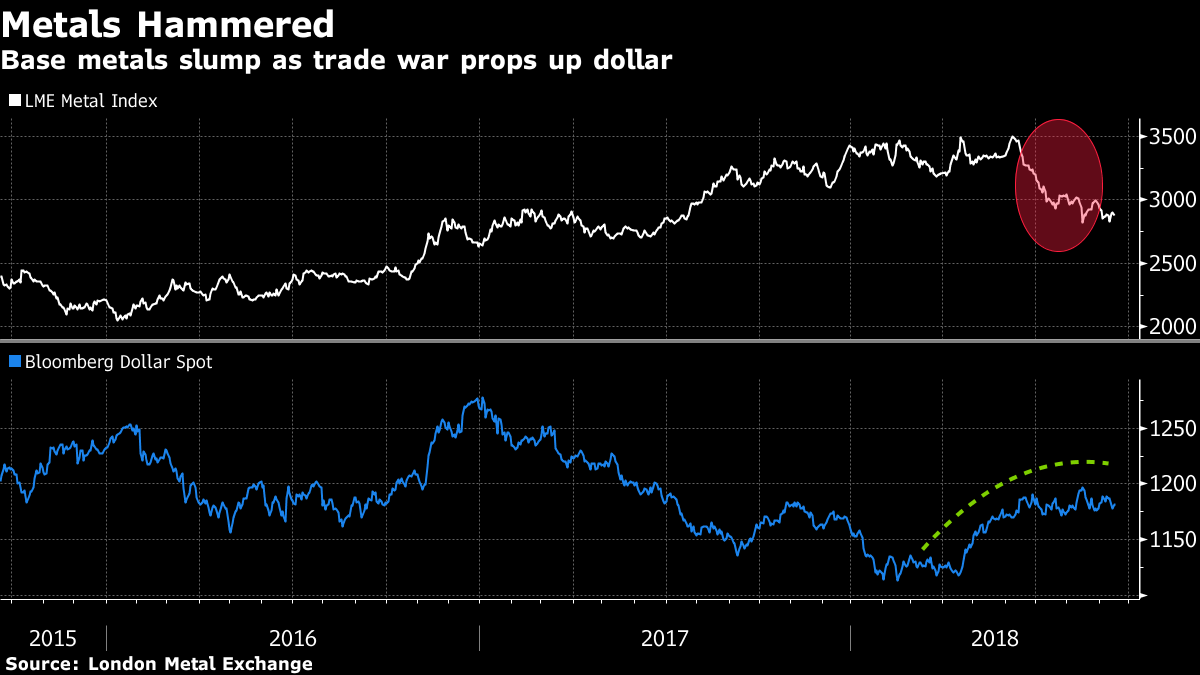Base metals drop as trade war angst spurs concern about demand
(Bloomberg) - Industrial metals started the week with more losses on concern that the escalating U.S.-China trade war will hurt prospects for demand in the biggest users.
Copper, nickel and zinc dropped at least 1.3 percent in London after President Donald Trump was said to have instructed aides to proceed with tariffs on about $200 billion more in Chinese products, despite his Treasury Secretary's attempt to restart talks. Aluminum's losses also came as the U.S. Treasury softened the impact of sanctions on Russian supplier United Co. Rusal.
Metals have been under pressure for months as the U.S.-led trade war fans concern that the showdown will derail otherwise-strong economic growth in the world's two largest economies. A rallying dollar has put additional pressure on buyers in China by making it more expensive to import industrial commodities.


"As we have been noting all year, the best of the growth in the industrial cycle is now behind us," Colin Hamilton, managing director for commodities research at BMO Capital Markets Ltd., said in an emailed note. "Trade frictions, emerging-market concerns and cost inflation have all become increasing headwinds, and naturally purchasing managers are less confident.""As we have been noting all year, the best of the growth in the industrial cycle is now behind us."
Nickel led the retreat, sliding 2.8 percent to $12,305 a metric ton on the London Metal Exchange, wiping out gains made last week. Copper declined 1.4 percent to $5,891, and mining shares including BHP Billiton Ltd. and Glencore Plc also lost ground.
Trade Spat
The U.S. public comment period for the tariffs on $200 billion in Chinese goods has closed, and any new round would be in addition to levies on $50 billion in goods already in place. Trump's move may prompt Beijing to decline the offer of negotiations, the Wall Street Journal said. Goldman Sachs Group Inc. last week said there's scope for further losses in metals, despite prices appearing oversold.
Aluminum lost 0.7 percent on the LME. The U.S. Treasury late Friday suggested that customers could sign some new contracts with Rusal - as long as they were consistent with their dealings with the company before sanctions were imposed in April. That's important because many aluminum consumers have quarterly or annual contracts with Rusal that are expiring.